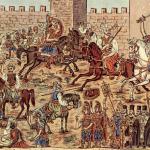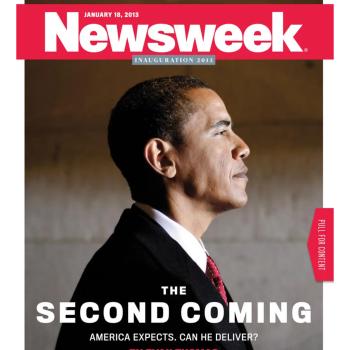During the month of April at the Anxious Bench, a number of our columnists are participating in a joint collaboration with the AACC (Asian American Christian Collaborative) to draw attention to the history of gun violence in the United States. Since the shootings in Buffalo, Laguna Woods, and Uvalde, the AACC has been a crucial Christian organization that is actively pursuing advocacy and policy efforts to address gun violence in the United States, and the Anxious Bench is proud to partner with them to raise awareness about the long and terrible history of gun violence in the United States.
Perhaps the most difficult part of researching racial violence and the exploitative nature of racial capitalism is maintaining hope through the work. As I researched Black Protestant responses to lynching for my dissertation, the development of a particular Black Presbyterian pastor kept entering into my mind. Francis Grimke pastored his church in Washington, DC, for more than 40 years: from 1885-1928 with a few years in Florida breaking that time up. Following the lynching of Sam Hose, he entered the pulpit and preached a series of sermons about lynching’s causes and remedies. In these sermons, he lauded education as the primary way to curb brutal racialized violence. At that point, I’m sure he thought that it would be enough. It would only take a few years, however, for that optimism to be shattered.
After the Atlanta “race riot” on September 22, 1906, Grimke lost his patience. I imagine that the collective trauma of having to hear about lynchings once a week on average would do that to a person. If one closely reads his October sermon, one notices that the theme of racial self-determination takes center stage. Gone are the references to education and the need for the barbarous Southern white man to change his mind, which were the emphases of his 1899 sermon series. He turned to his predominantly black congregation and gave them three pieces of advice: to not be discouraged, to be cautious, and to be prepared to defend themselves. The particular words he used to state that final point are important:
“Be prepared to defend yourselves, if necessary. I know the meaning of these words. I have carefully weighed them; and before God, I believe in the message which they contain. To every black man throughout the whole southland, I say, and say deliberately, Be prepared to defend yourself if necessary.”
His method was a method of desperation. In his years of ministry, self-defense became the only viable option: the only defense that Black people had against the lyncher was themselves. And throughout the sermon, Grimke emphasized how unapologetic he was about making such claims, arguing that he didn’t think “anyone can take any just exception” to a suggestion that was “sound, through and through, [and] in harmony with the dictates of nature, and of morality, and of religion.” Education may have worked in the mind of early Grimke, but after less than a decade, he was convinced that violence could only be truly restrained by the threat of violence.
The historical context of this shift is important, insofar as it draws attention to the precarity of hope. We experience this same temptation toward hopelessness and despair when we are constantly bombarded by news of mass shootings. We experience this same temptation toward hopelessness and despair in church circles with the constant news of abuse of power. I think of the last years of W. E. B. Du Bois’ life, where he became increasingly fed up with the United States’ failure to live up to its promises to Black Americans. I think of the last few years of Martin Luther King’s life as he struggled with bouts of depression. Hope is difficult to maintain in the face of injustice and there are numerous examples of folks who struggled to maintain it in the face of darkness.
When one understands, as I have tried to consistently say, that racism is more than just a matter of thought, but rather of material exploitation that ultimately leads to death, it is even easier to lose hope. After all, the conditions in which we find ourselves took centuries to create; what could we possibly do now? But when I am faced with the temptation to be overwhelmed by the nature of this historical and present evil, I am reminded of the text of Ephesians 6, where the Apostle calls the Christian to don the armor of God. This armor is not offensive. Rather it is defensive. The Christian is called not to fight, but to stand.
What this suggests to me is that the war waged against us by the rulers, authorities, powers of this dark world and spiritual forces of evil in the heavenly realms is a war of attrition: domination and exploitation win when we give up. They do not win by overpowering us, but rather by chipping away at us. Thus the highest priority for Christians seeking to eliminate domination, exploitation and injustice from their midst must be to maintain said hope.
My dissertation spent a fair amount of time with Grimke and I wrote a book chapter on him. In many ways, I identify with him. Yet what I saw in this shift of his was actually a loss of hope, even though he ended this particular sermon with a picture of what a nation without lynching would look like. The damage had already been done though: the only route that he saw to such a future was for Black people to threaten violence. This temptation looms over everyone who seeks to stare into the darkness. Here, Nietzsche was right to say, “Battle not with monsters, lest ye become a monster, and if you gaze into the abyss, the abyss gazes also into you.” For those of us who have been called to gaze into the abyss, the darkness can be overwhelming. But we cannot forget that the Light can and will always pierce it.
















